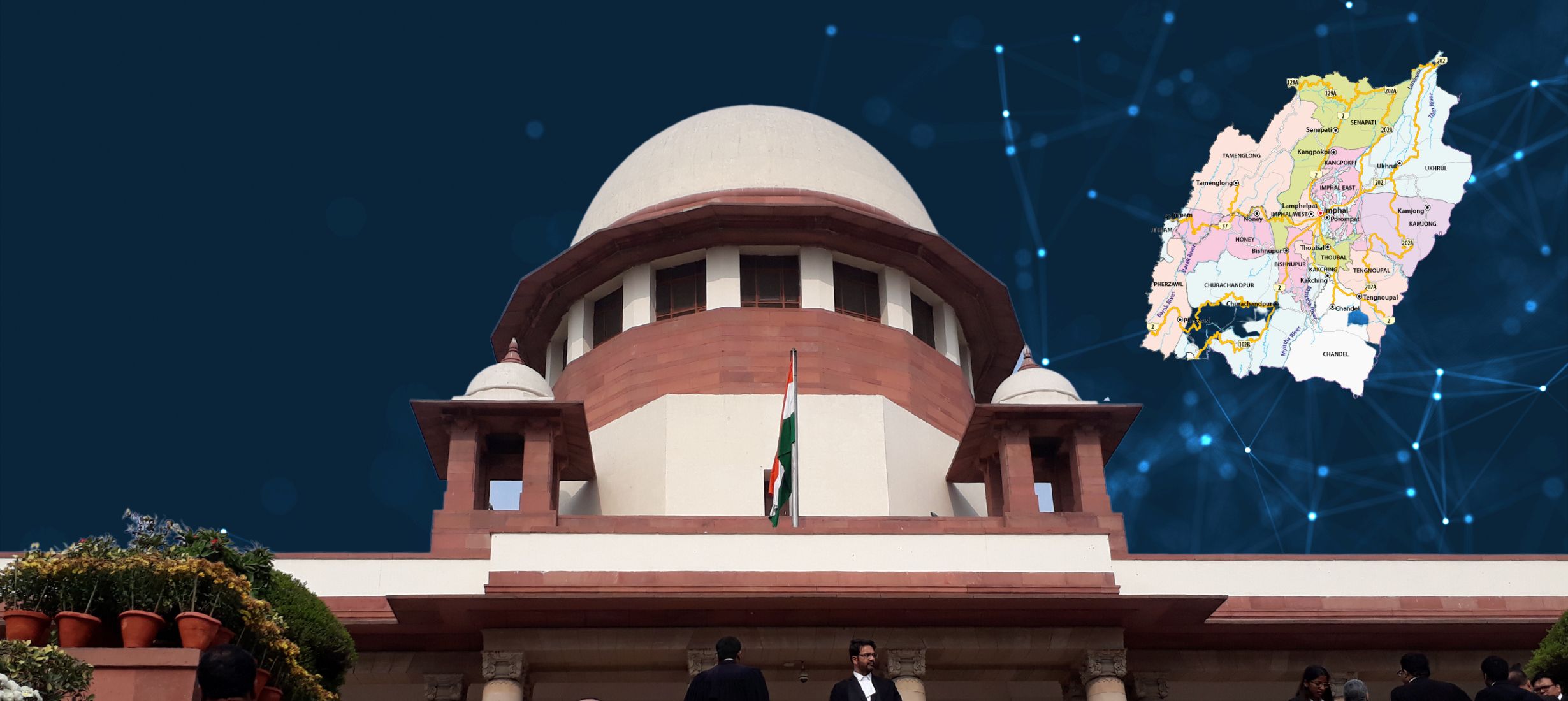Analysis
Petitioners Withdraw Challenge Against Internet Shutdown in Manipur
Petitioners expressed their intention to intervene in the pending challenge to the internet shutdown before the Manipur High Court.

Today, a 3-Judge Bench led by Chief Justice D.Y. Chandrachud with Justices P.S. Narasimha and Manoj Misra dismissed a petition challenging the constitutional validity of the Manipur Internet Shutdown. Adv. Shadan Farasat, appearing for the petitioners, requested to withdraw the petition, so that they may approach the Manipur High Court which is hearing similar petitions. In May 2023, the petitioners approached the Supreme Court claiming that the Internet Shutdown violates their right to life and livelihood under Articles 19 and 21.
What was the Petition About?
On May 3rd, 2023, a violent clash erupted during a ‘Tribal Solidarity March’ in Manipur. The march was organised to protest against the inclusion of the Meitei community in the Scheduled Tribes (ST) category. The Nagas and Kuki tribes, in particular, opposed the inclusion due to the Meitei community’s majority population and political representation in the region.
The State of Manipur ordered a state-wide internet shutdown to tackle the escalating violence. The notification stated that the shutdown will prevent ‘anti-social elements’ from misusing social media platforms to incite the public, spread false rumours, and share hateful content.
On May 28th, 2023, two petitioners, Chongtham Victor Singh and Mayengbam James MC, filed a Writ Petition in the Supreme Court challenging the internet shutdown. By then, Manipur had experienced 24 days of no internet access.
They asserted that the lack of internet access had severely impacted their lives and livelihoods, violating their fundamental rights guaranteed under Articles 19 and 21 of the Constitution. The petitioners referred to Anuradha Bhasin v Union of India (2020), where the SC held that an indefinite suspension of internet services was contrary to the law.
They further argued that the suspension orders violated Section 5(2) of the Telegraph Act, 1885 and the Telegraph Rules. According to Section 5(2), internet services can be suspended only during a ‘public emergency’ or in the ‘interest of public safety.’ The petitioners claimed that the orders did not explicitly mention or refer to a public emergency. The orders merely cited a threat to ‘law and order’ and the presence of ‘anti-social elements’.
Mr. Singh and Mr. James requested the Supreme Court to declare that the shutdown was ‘illegal’ and restore internet access in Manipur.
Why was the Challenge Withdrawn?
While requesting to withdraw the petition, Adv. Farasat referred to Aribam Dhananjoy Sharma v State of Manipur (2023). In Aribam, the Manipur High Court was considering a plea to restore Internet access in Manipur. Withdrawing the petition would enable the petitioners to intervene in the Manipur HC. ‘Intervening’ in a court proceeding allows a party to participate in a case that has already begun.
On June 27th, 2023, the Manipur HC constituted an expert committee. The committee was tasked with making a report on whether limited internet services could be restored in Manipur. Adv. Farasat suggested that the Manipur HC should consider the ‘Test of Proportionality’ in this report. The ‘Test of Proportionality’ is a standard used to determine if a restriction on a fundamental right has a legitimate goal and if the impact of the restriction is proportionate.
The SC granted permission to withdraw and stated—“Based with the fact that, a petition under Article 226 is pending before the Division Bench of the High Court, learned counsel Shadan Farasat seeks permission of the Court to withdraw the petition, thus to enable the petitioner to either intervene in the pending proceedings or initiate fresh proceedings. We grant him permission to do so”.
